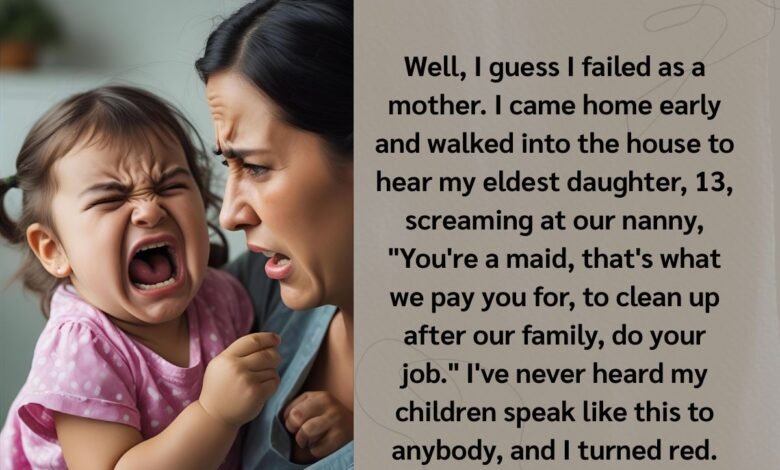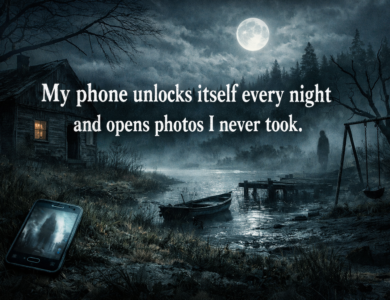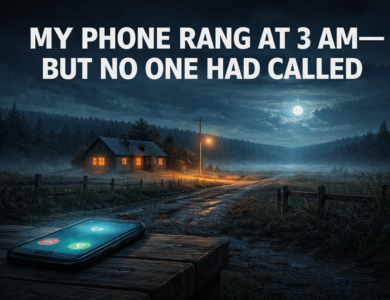
“Well, I guess I failed as a mother. I came home early and walked into the house to hear my eldest daughter, 13, screaming at our nanny, ‘You’re a maid, that’s what we pay you for, to clean up after our family, do your job.’ I’ve never heard my children speak like this to anybody, and I turned red.
What I did next made my MIL claim that I was ‘ruining’ our daughter. Am I? I just… snapped. I couldn’t believe the words coming out of Leena’s mouth.
Leena has always been headstrong, opinionated, and quick to argue—but cruel? No. That was new. She’s thirteen, yes, but I’ve raised her to be respectful. We’ve never treated our nanny, Carmela, like “the help.” She’s family.
Carmela’s been with us since Leena was two. She’s changed diapers, wiped tears, sang lullabies, stayed late when I had work emergencies, and even helped my youngest, Ishan, learn how to tie his shoes. She’s been to our holidays. She eats with us.
So when I heard my daughter bark at her like some servant in an old movie, I saw red.
Carmela stood there stunned, her eyes wide, blinking like she’d been slapped. I don’t think she even registered me in the room yet. Leena was still going, saying something about “dirty plates” and “lazy people.”
That’s when I stepped in.
“LEENA!” I shouted. Loud. The kind of shout that stops the world.
She froze. Carmela finally looked over at me.
I walked straight to Leena and said, “Apologize. Right now.”
Leena crossed her arms. “Why? She’s paid to—”
I cut her off. “Paid or not, she’s not beneath you. And you will never speak to anyone like that in this house. Ever.”
She rolled her eyes. And that was it for me.
I looked her dead in the eye and said, “You think you understand what Carmela does for this house? Great. Starting tomorrow, she has the week off. And you’re taking over everything she does.”
She laughed. “What, like… laundry?”
I turned to Carmela. “You’re off starting now. Paid. Take the week, relax.” I looked back at Leena. “You’ll cook, clean, fold laundry, pick up after your brother, make lunches, wipe counters, mop, everything.”
Leena gawked like I’d told her she was being sent to space. “MOM, are you serious?”
My mother-in-law, who was over for tea, gasped from the living room. “You’re letting her play housekeeper? You’ll ruin her. That’s not how you discipline a child.”
I ignored her.
I meant it. I wasn’t angry—I was disappointed. And I needed Leena to feel something other than entitled.
Day one started with her sleeping in and missing the alarm. I didn’t wake her. Ishan’s lunch didn’t get packed. His uniform wasn’t ironed. Breakfast wasn’t made.
When Leena finally stumbled downstairs at 8:15, wearing mismatched socks and clutching her phone, I just nodded toward the kitchen. “Breakfast?”
She looked around, confused. “Wait… Carmela really didn’t come?”
“Nope. You’re her for the week, remember?”
The realization started to hit.
She made toast. Burned the first batch. Spilled orange juice trying to pour it with one hand while texting. Then got annoyed when I told her to clean the counter.
By 9:30, Ishan had missed his bus, and I drove him to school. I made Leena come with us.
“You’re responsible for your brother this week,” I said as we dropped him off. “Start to finish.”
She was quiet.
The second day was worse. She forgot to take the clothes out of the washer, and they stank. Had to rewash them. She tried folding while watching a show on her phone and ended up dropping clean clothes on the floor.
By day three, she was dragging. I caught her crying quietly while scraping scrambled eggs off a pan she forgot to soak. She snapped at Ishan when he spilled his juice, and I immediately stepped in.
“Don’t like being spoken to like that, huh?” I said.
She bit her lip and said nothing.
On day four, something shifted. I woke up to the sound of dishes clinking. Leena was in the kitchen, messy ponytail and all, cracking eggs into a bowl. No phone in sight.
“I figured I’d try an omelet,” she mumbled when I walked in.
“Need help?” I asked.
She shook her head. “No. I got it.”
She’d packed Ishan’s lunch that morning. Wrote his name on the paper bag in marker.
And that night, after dinner, when I told her she could leave the dishes and I’d get them, she shook her head again. “I made the mess. I’ll clean it.”
I glanced at her as she scrubbed a pan with more care than I’d seen all week. Her fingers were red from hot water.
She turned to me suddenly and said, “Carmela does this every day?”
“Every single one,” I said.
“And she doesn’t even complain.”
“Nope.”
Leena stared at the sponge in her hand, then down at the soapy water. “I was awful to her.”
I didn’t say anything. I just let the silence hang there.
The next morning—day five—I drove her to the grocery store and handed her the shopping list. “This is usually what Carmela does while you’re at school.”
She wandered the aisles with that list like it was written in Greek. Kept checking prices. Forgot the brand of cereal Ishan liked. Grabbed the wrong rice. Then dropped a bottle of olive oil in the checkout line and burst into tears.
I didn’t scold her. I just hugged her.
That night, she asked if she could call Carmela.
She went up to her room and stayed there for about twenty minutes. When she came back down, her eyes were puffy.
“She said she forgives me,” she whispered. “But I feel like crap.”
I walked over and tucked her hair behind her ear like I used to when she was little. “That’s called growth, baby. It hurts sometimes.”
The week ended with Leena waking up early on Saturday and cooking pancakes—for all of us. Even Carmela, who she begged to come back. She asked if she could serve them. Carmela just smiled and kissed the top of her head.
Later, I found a handwritten letter on Carmela’s pillow. It was from Leena. She had written three pages apologizing, promising to never treat anyone like that again.
But the twist? That came two weeks later.
Carmela approached me in the kitchen one afternoon and said, “I’ve been thinking about going back to school. Maybe getting my certification to teach. I’ve always wanted to.”
I felt my heart swell. “You should.”
“I’d still like to work part-time. But I want to do something for me, too. Leena… watching her learn this… it reminded me that I don’t want to just clean up after people. I want to grow, too.”
Leena offered to help her study for the entrance exam. They’d sit at the dining table together—one doing algebra, the other reading aloud from a workbook.
Now, six months later, Carmela is taking evening classes and working with a local preschool in the mornings. Leena volunteers there twice a month. By choice.
And just this past week, I overheard her talking to her friend on the phone.
“No, my mom didn’t ruin me,” she said. “She reminded me who I want to be.”
So no, I don’t think I failed as a mother. Not at all.
We all mess up. Kids are growing, and part of growing is making mistakes—but only if someone stops them in their tracks, shows them the damage they’ve done, and then lets them make it right.
Sometimes, the best lessons don’t come from lectures—they come from mops, burnt toast, and one long, hard week of walking in someone else’s shoes.
If this hit home for you, give it a like or share it. You never know who might need to hear it.
Read More:







